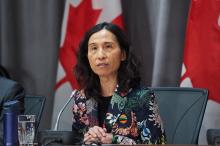Last month, Mark Machin, CEO of the Canada Pension Plan (CPP), wrote that climate change is the crisis beyond COVID-19 that we can’t afford to ignore, stating that “the full effects will depend on the actions we take now and in the future.”
We strongly agree.








